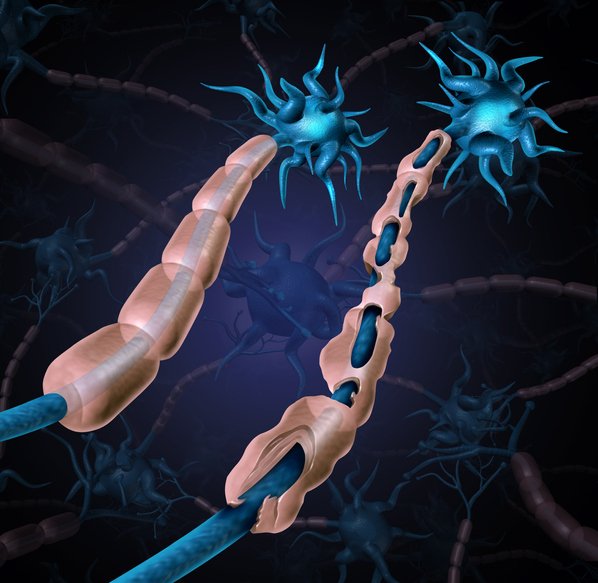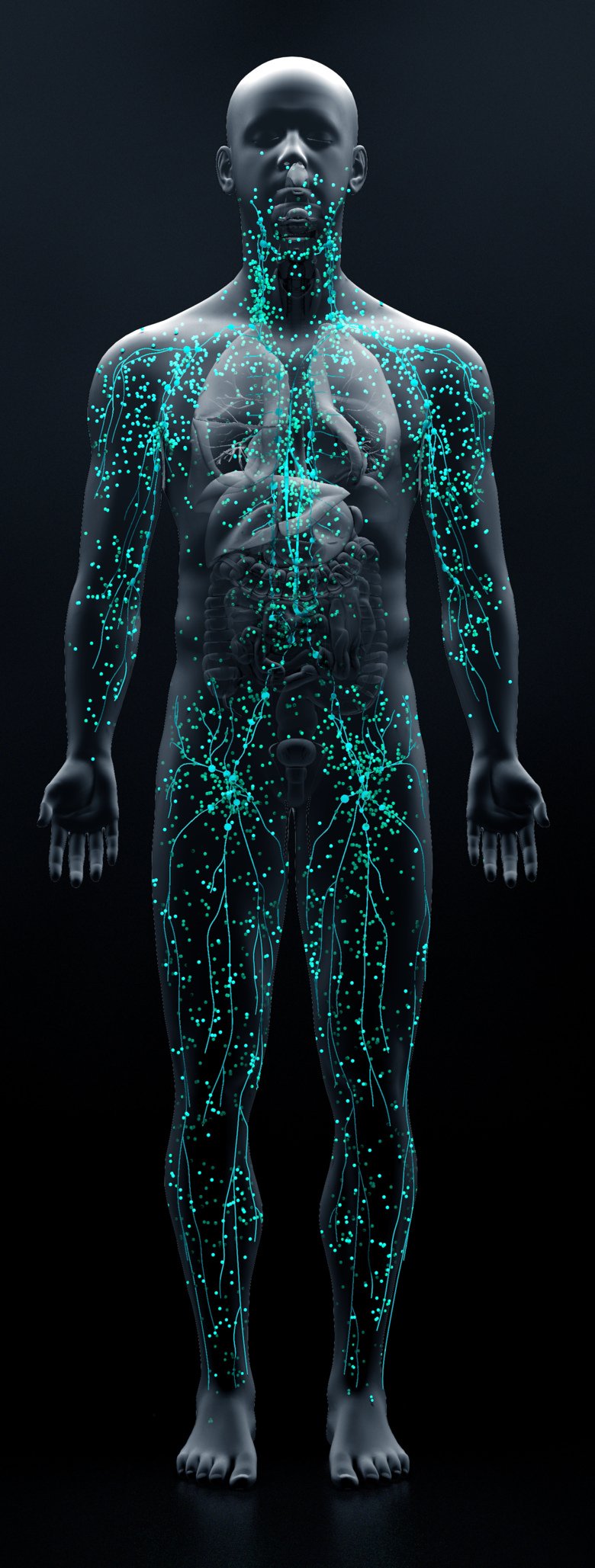Autoimmunity around the body
There are about 80 autoimmune diseases. In most of them, the immune system attacks a more or less limited part of the body. But sometimes several organs are attacked at the same time. These autoimmune diseases are called systemic.
Various organs can be affected

The brain and nervous system. MS/multiple sclerosis
MS attacks a substance called myelin that surrounds nerve cells. Symptoms may include visual problems due to attacks on the optic nerve or, for example, numbness, difficulty in balance, fatigue and depression.
The thyroid gland. Hashimoto's disease
This is an attack on the thyroid gland, which manufactures thyroid hormones which regulate the metabolism. The result is hypothyroidism, too low a metabolism, with symptoms such as fatigue, chilliness and weight gain.
The adrenal glands. Addison's disease
The adrenal cortex of the adrenal glands is attacked, causing a lack of the hormones cortisol and aldosterone with symptoms such as severe fatigue, low blood pressure and a craving for salty food. Extremely low levels of cortisol can be fatal and need to be treated urgently.

Joints. Rheumatoid arthritis
The immune system attacks joints, with pain, stiffness and fatigue as a result. Other parts of the body may also be affected. The treatment is with individually tailored medicines. Training is an important part of self-care.
The intestines. Gluten intolerance/celiac disease
With celiac disease, gluten, which is found in wheat, rye and grains, triggers the autoimmune reaction. The immune system mainly attacks the intestinal villi, which are important for nutrient uptake. The only treatment available is to exclude all gluten from the diet.
The pancreas. Type 1 diabetes
When the insulin-producing cells in the pancreas, beta cells, are attacked, they can no longer produce insulin, a hormone needed for the body's cells to be able to absorb blood sugar. The treatment is to give insulin.
Blood vessels. Vasculitis
A group of rheumatic diseases in which blood vessels are affected by inflammation. Symptoms depend on which blood vessels are inflamed.
... or the whole body at the same time

SLE/systemic lupus erythematosus
SLE is a rheumatic system disease that can cause symptoms in, for example, the skin, kidneys, blood vessels, pleura and pericardium. Common symptoms include severe fatigue and joint pain. Symptoms from the nervous system also occur. The treatment is with individually tailored medicines.
Systemic sclerosis
A rheumatic system disease in which the body forms connective tissue to a greater or lesser extent. Changes can occur in the skin and subcutaneous tissues, in blood vessels and in internal organs, such as the lungs, heart and kidneys. There are great individual differences in how the disease manifests itself. There is immunosuppressant and symptom relieving treatment and self-care is important.
Sjögren’s syndrome
A rheumatic disease which attacks the tear and saliva glands, which causes dry eyes and a dry mouth, but which can also manifest itself systemically with effects on, for example, the joints and skin. The disease can occur together with rheumatoid arthritis and SLE. There is immunosuppressant and symptom relieving treatment.
Text: Annika Lund, first published in Swedish in the magazine Medicinsk Vetenskap no 4/2020.
